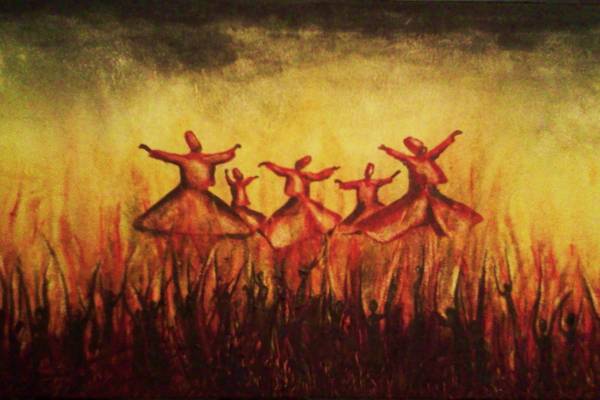During the last two decades, the thirteenth century poet, Jalaluddin Rumi, has become a celebrity, especially in America where he is a best seller among poets. Yet at the same time, his name still remains largely unknown to many. In a few weeks time, however, the Gladstone’s Library will give us a chance to get a glimpse of this extraordinary man and of the richness of his work, through a recital of music and of some of his poems.
Someone once said, ‘Love is a force but its essence is tenderness.’ This could be a definition of Rumi’s work as his poetry is as powerful as it is moving. For Rumi does not appeal to our intellect but to our deepest feelings and for this, he uses imagery, metaphors, humour, stories, all of which he borrows from the world outside: the garden, the kitchen, the public bath. Of course, what he is really talking about is our soul and its relationship to God. And what he does is to scatter seeds of wisdom, which we then have to integrate. For his goal – as with all Sufis – is not to indoctrinate but to make us experience and participate in his teaching. But it must be stressed: nothing is by chance in Rumi’s poetry; on the contrary, his poetry is carefully structured in order to produce an inner effect on the reader or the listener, and so force the logical mind to take a pause.
Bur rather than talk about Rumi, it is better to listen to him. As he said himself in his life time, don’t look at me but at what is in my hands.
Listen to the tale of the reed, complaining of its separation from the reed bed.
Since I was separated from the reed bed, my complaint has made men and women groan
These are the very first words of the Masnavi, Rumi’s main work, a total of nearly 50,000 verses. Rumi is talking here of the pain buried in the heart of every human being, of which he asks us to become conscious, for, as he keeps telling us, this pain is our door to what all of us most desire and yet fear at the same time, God, our real home.
Now in order for Rumi’s work to really affect us, we have to make ourselves sufficiently empty; empty of preconceived ideas, of prejudices, of hidden assumptions. Then, and only then, shall we taste the flavour, the fragrance of Rumi’s teaching. But Rumi warns us, the task is not always easy and it does take a long time.
The world is like the tree, O noble men; we are like the fruit, half ripe, attached to the tree. …
Once the fruit is ripe and has become sweet, it is only slightly attached to the branch. …
To strongly cling to the world is a sign of immaturity …
There is more to say but this is up to the Holy Spirit who will tell you without me.
Or rather it is you who will tell your own ear – neither me nor someone else will tell you, O you who are myself.
These are words to be savoured not analysed. Let them resonate within you. They know how to reach that deepest part of you … which already knows.

Painting of Rumi by Sherayah Kahn